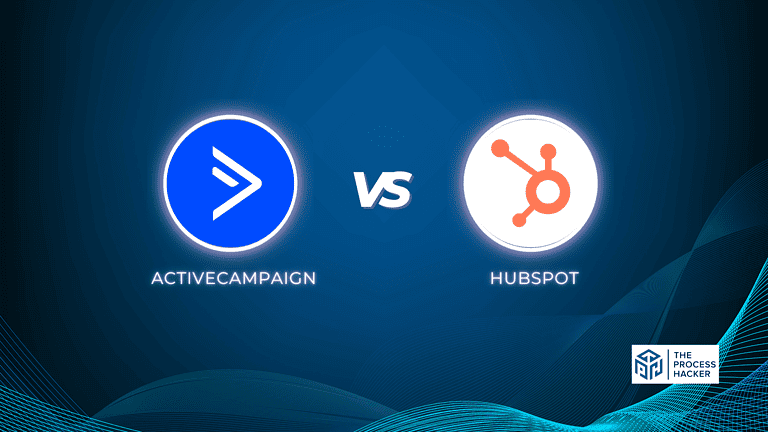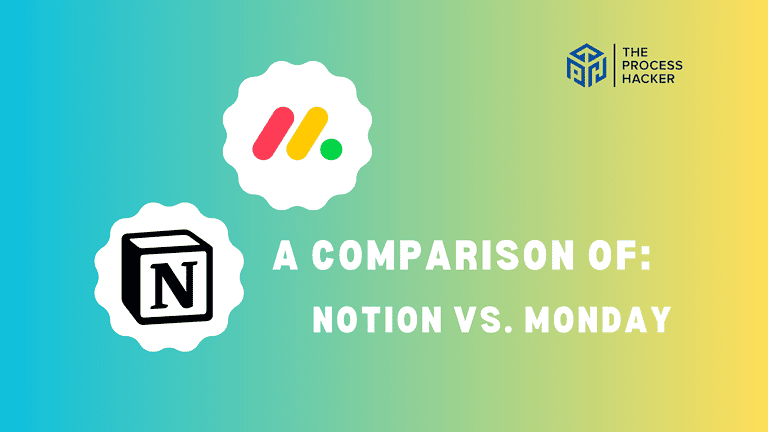10 Ways How to Leverage Social Media Marketing for Your Small Business
Do you ever feel like social media is just another thing to add to your endless to-do list?
You may feel like your posts aren’t getting any traction or be unsure which platforms you should be on.
I’ve been there, too—overwhelmed by all the options and wondering if putting time into social media is really worth it. But I’m here to tell you that, if done right, social media marketing can be one of the most powerful tools for growing a small business.
If it’s done wrong, it can feel like a huge waste of time, though. In this post, I’ll share the top 10 ways I’ve found that small business owners can leverage social media without going insane.
From choosing the right platforms to the specific types of content that connect best with your ideal customers, you’ll walk away with practical social media marketing tips to start seeing real results without spending endless hours you don’t have.
Let’s jump in and take your social media marketing to the next level!
What is Social Media Marketing?
Every business needs social media marketing tools to build an online presence and gain potential customers, especially on these top 3 social media platforms: Facebook, Twitter, and Instagram.
It involves creating and sharing content that promotes the brand, encourages engagement, and drives organic traffic to its official site. Given the immense number of people who use social media daily, marketing efforts in these places may be successful for the company.
However, excellent and effective social media marketing requires careful planning, research, and execution to create compelling content and reach your target audience. Social media could increase branding awareness and customer engagement in ways you have never imagined!
How Does Social Media Marketing Benefit Your Small Business?
Thanks to the 3 billion users on social platforms globally, small companies can now develop brand recognition, engage with their target audience, and potentially increase their income. They can reach a larger audience compared to how marketing worked before.
Social media marketing, via focused social media marketing campaigns, interesting content, and interactive postings, may assist small companies in developing client connections, increasing sales, and establishing a devoted following.
Furthermore, social media marketing is frequently less expensive than conventional marketing strategies, making it an effective choice for startups trying to optimize their marketing budget.
Overall, social media marketing’s advantages for small companies are obvious: it’s a low-cost, high-impact strategy for reaching a larger audience and driving company development!
What Are the Ways to Leverage Social Media Marketing?
Businesses can leverage social media to maximize their marketing efforts in many ways. From creating compelling content to engaging with followers, social media marketing requires a multifaceted approach.
So, what are the ten ways to leverage social media marketing? Let’s explore all the possibilities!
#1) Develop a Solid Social Media Marketing Strategy
A properly planned social media strategy is the foundation of a successful online presence. Without a clear plan, your efforts may be unsuccessful.
Begin by defining specific goals, such as increasing brand recognition to boost market exposure, building an audience, generating leads to feed your sales funnel, or encouraging customer involvement to establish long-term connections.
Gain a thorough grasp of your target audience’s demographics, interests, and concerns to adapt your content properly and ensure it connects with and adds value to your audience. This will enable you to properly allocate your efforts and resources, resulting in more effective social media campaigns.
Choose every social media network relevant to your company’s aims and target market since each has its own user base and capabilities, enabling you to optimize your influence. LinkedIn, for example, is good for B2B marketing, but Instagram may be more appropriate for reaching out to a younger demographic.
Developing a great social media strategy is a constant process that requires regular study, analysis, and modification to remain relevant. This ensures that your efforts remain successful and efficient over the long term. Use analytics in social media management tools to monitor your success, discover what material connects with your audience, and alter your plan as needed.
#2) Optimize Your Profile on the Social Media Platforms
Social media networks’ presence is your digital billboard, and a strong first impression is essential. Complete all required elements, including a compelling title and a visually attractive profile image.
Employ high-quality profile and cover photographs that are consistent with your brand’s identity. Since these visuals make the first impression and should show professionalism and authenticity, use consistent branding components such as the logo, color scheme, and typefaces to create content and a unified design.
Create an intriguing and informative bio that emphasizes your unique selling points. This bio should clearly express what distinguishes your company and pique the interest of prospective followers. Use relevant keywords to improve your site’s SEO.
To create unified social media platforms, ensure that branding components like logos, color schemes, and typefaces are consistent across all profiles. Find relevant hashtags for your business or specialty and use them wisely in your postings.
Update your profile information, photographs, and cover shots regularly to maintain branding consistent with your company’s progress and show your target audience the most recent advancements, goods, or services.
#3) Create Engaging, High-Quality Content
Compelling content is the key to audience engagement and retention. Your followers seek valuable and relevant information from your brand, so creating content that resonates with them is essential.
Content variety: To cater to diverse preferences, diversify your content with text, images, videos, infographics, and user-generated content. Use polls, Q&A sessions, and contests to interact with your audience and encourage participation.
Content calendar: Implement a social media calendar to schedule posts systematically, maintaining a consistent posting frequency. This will help you plan and organize content in advance, ensuring a steady flow of engaging material for your audience.
Interactive content: Foster engagement with interactive content like polls, quizzes, contests, and questions, offering valuable insights into audience preferences. Encourage comments, shares, and likes to increase your reach and build a community around your brand.
Alignment with objectives: Tailor your content strategy to align with your marketing objectives, whether lead generation, brand awareness, or customer retention. This will ensure that your efforts are focused and effective in achieving your goals.
#4) Implement Paid Social Media Advertising
While organic reach is useful, sponsored advertising may greatly boost your social media presence. Major social media platforms such as Facebook, Instagram, and LinkedIn provide various targeting choices for reaching your target audience.
Precise targeting: Use platform-specific ad targeting to reach a highly relevant audience. This include demographics, interests, habits, and even lookalike audiences.
A/B Testing: To discover the most successful combinations, test different ad formats, images, and ad content using A/B testing. This can help optimize your ad expenditure and guarantee you reach the appropriate people with the correct message.
Continuous Optimization: To maximize ROI, evaluate and improve your ad campaigns regularly using performance data. Alter your targeting, budget, and ad creativity to continually enhance your outcomes.
Expand your reach: Paid advertising allows you to reach a larger audience quickly, enhancing brand awareness and possible conversions. Consider targeting several platforms and ad types to broaden your reach.
#5) Engage Actively with Your Target Audience
Building genuine interactions with your audience is essential. Respond to comments and messages, seek feedback, and express gratitude for their support. This not only makes your audience feel important, but it also helps to establish trust and loyalty to your business.
Show that you care about your customers by acknowledging and responding to comments, emails, and mentions. This not only deepens your connection with current clients but also demonstrates your brand’s responsiveness and attracts new ones.
Encourage your fans to develop and share material related to your brand. This will promote community and trust, market your business organically, and allow you to showcase user-generated material on your own channels.
Hold live Q&A sessions or webinars to directly engage your audience, answer questions, and develop credibility. This not only allows for real-time feedback and conversation but also gives you a chance to demonstrate your knowledge and gain trust.
Conduct surveys and solicit feedback to better understand your target audience’s requirements and preferences, then modify your plan appropriately. This not only demonstrates that you care about your followers’ feedback, but it also helps enhance your brand’s offers and services.
#6) Analyze Data and Metrics
Data-driven decision-making is critical for sustained success in social media marketing. This data can help you refine your strategy, target specific audiences, and measure the success of your social media efforts.
Key Performance Indicators (KPIs): Identify and track relevant KPIs such as reach, engagement, conversion rates, SEO metrics, and click-through rates. This data may help you understand what content connects most with your audience and drive future efforts.
Use analytical tools: Use social media analytics tools to gain insights into your audience’s activity and fine-tune your plan. Tools such as Google Analytics, Facebook Insights, and Twitter Analytics can monitor your performance and provide insights into your audience demographics, engagement rates, and total reach. For example, Facebook insights include information on post reach, interaction, and audience demographics.
Competitive Analysis: Analyze your rivals’ social media tactics to identify possibilities and gaps in your approach. Monitor their content, tone, and engagement levels for ideas and ways to enhance your approach.
Continuous Improvement: Regularly adjust your plan based on data research to align with changing audience trends and preferences. This ensures that your content remains current and connects with your readers.
#7) Collaborate with Social Media Influencers
Partnering with influencers may help you expand your reach and reputation. Look for influencers that have a large following in your business or area and actively communicate with their audience. Collaborating with them allows you to tap into their dedicated fan base while also reaching out to a new audience.
Select the appropriate influencers: Choose influencers whose audience shares your target market’s values. Influencer marketing efforts have yielded an average ROI of $6.50 for every dollar invested, demonstrating the powerful effect that the appropriate influencers can have in promoting businesses or services.
Clear agreement: Formal agreements should include explicit terms, expectations, and pay structures to guarantee a mutually beneficial collaboration and help prevent future misunderstandings and disputes.
Measure the impact: Track the effect of influencer partnerships via unique codes or tracking links, which allow for exact evaluation of engagement and conversion rates. This data may then be utilized to improve future social media marketing guide and identify the most successful influencers for your company.
Authenticity is key: Encourage influencers to generate true and genuine content that speaks to their audience rather than just advertising a product. This will assist to create trust and credibility among their following, resulting in more effective cooperation.
#8) Leverage User Reviews and Testimonials
Use the power of social proof by displaying user reviews and testimonials. People are more inclined to trust and buy from a brand that has favorable feedback from genuine customers.
Encourage reviews: Encourage satisfied consumers to give feedback on your social media sites or third-party review services. This will not only assist your brand’s trust, but will also give useful input for future changes.
Highlight successful stories: Build trust with your audience by sharing real-life success stories and testimonials. This may include written reviews, video testimonials, and even influencer partnerships in which they share their experience with your product or service.
Address the bad feedback: Handle unfavorable comments professionally, demonstrating your commitment to client satisfaction and desire to improve. This may also assist to keep prospective clients from being put off by poor reviews.
Transparency: Transparency regarding your goods or services can help you gain credibility and establish closer connections with your target audience. This may involve presenting information about your company’s beliefs, purpose, and any ethical or sustainable procedures in place.
#9) Stay Updated with Social Media Trends
Adapting to changing trends is critical in the dynamic world of social media. Keeping an eye on the newest trends and adopting them into your plan can help you remain relevant and interact with your target audience.
Follow industry news: Stay current on industry trends, upgrades, and algorithm changes that may affect your approach. This will allow you to keep ahead of the curve and make essential changes to your material.
Participate in webinars and conferences: Participate in webinars and industry conferences to learn from experts, obtain new perspectives, and broaden your network. This will also help you keep up with current trends and methods.
Experiment with new features: Embrace new social media aspects and formats to remain ahead of the competition and respond to evolving consumer preferences. For example, use Instagram Reels or YouTube Shorts to present your business in a creative and engaging manner.
Benchmarking: Regularly compare your social media performance to industry norms to uncover areas for improvement. This may also help you maintain your competitive advantage and respond to market developments.
#10) Monitor and Continuously Adapt Your Social Media Channels
To be successful, social media marketing has to be constantly monitored and adapted. Keep an eye on your stats and adapt your plan appropriately. If a campaign or post isn’t functioning well, investigate why and make the required adjustments.
Regular audits: Conduct regular audits of your social media plan to measure its success and make any required improvements based on performance metrics. This will help you remain on top of trends and ensure that your approach is in line with your company objectives.
Compliance: Follow platform regulations and guidelines to prevent fines or account bans, resulting in a seamless and ongoing presence. Follow any modifications or updates to these policies and alter your approach appropriately.
Professional consultation: Seek help from social media marketing agencies and specialists to fine-tune your plan and remain competitive. They may give useful information and help you find areas for development.
Maintain agility in your approach so that you can quickly react to changes and capitalize on new chances. Monitor your performance on a frequent basis and be prepared to pivot if needed.
#11) Leverage AI to Produce Written and Visual Content Faster
In today’s fast-paced digital landscape, harnessing AI for your content creation can revolutionize how you engage on your social media accounts. It offers a swift, efficient way to keep your feeds lively and relevant, ensuring your small business stands out.
Automate Content Creation: Content automation and AI tools swiftly generate engaging posts, articles, and descriptions, keeping your online presence vibrant without needing manual input. This marketing automation saves you time and effort, freeing up resources to focus on other aspects of your business.
Tailor Content for Your Audience: AI can help craft messages that resonate deeply with your followers by analyzing past interactions enhancing engagement and loyalty. It can also provide valuable insights into your audience’s preferences and behavior, allowing you to create personalized content that drives results.
Create Stunning Visuals Easily: With its ability to quickly process large amounts of data, AI can help produce high-quality visuals such as images and videos for your social media accounts. These eye-catching visuals are essential for grabbing attention and standing out in a crowded digital landscape.
Optimize Your Strategy with AI Insights: Leverage AI to understand which content types perform best, allowing you to fine-tune your strategy and invest your efforts more wisely.
Final Thoughts on Social Media Marketing
In today’s digital world, using social media marketing for your small company is not a choice; it is a must.
While social media may seem frightening at first, with the appropriate attitude and plan, you can utilize it to propel your organization to new heights. The advantages are many, ranging from raising brand exposure and reaching a bigger audience to generating more sales and developing customer connections.
So, why wait? Take advantage of these 10 social media marketing strategies now and watch your company grow.
With every social media platform continually developing and new trends emerging, now is the best moment to join the bandwagon.
Don’t allow your rivals take the lead while you fall behind; instead, start interacting with your target audience with compelling content, interactive marketing, and targeted interactions.
As the phrase goes, “the early bird catches the worm,” so be ahead of the curve and enter the realm of social media marketing before it’s too late. Your little company deserves every success in the world; now go out there and make it happen!
Remember, if you are not harnessing social media for your company, you are losing out on a significant portion of the pie. Trust us, you won’t be sorry.
FAQs About Social Media Marketing
What is social media marketing, and how can it benefit small businesses?
Social media marketing is the use of numerous social channels to promote a brand, product, or service. It enables small companies like yours to raise brand recognition, attract website traffic, create leads, and foster client loyalty.
Which social media platforms should small businesses focus on?
Small companies should prioritize the channels where their target audience is most engaged. Some of the most popular platforms include Facebook, Instagram, Twitter, LinkedIn, and Pinterest. Each platform offers distinct features and advantages, and companies should choose the ones that best suit their marketing objectives.
How often should small businesses post on social media?
Small companies should publish at least once a day on Facebook and Instagram, three times daily on Twitter, and once or twice a week on LinkedIn. However, publishing frequency may vary depending on the sort of company and audience involvement level.
What type of content should small businesses post on social media?
Small companies should provide a combination of promotional and informative material that is valuable to their target audience. Promotional material comprises product images, offers, and discounts, while instructive content includes industry news, social media marketing advice, and tutorials.
How can small businesses measure the success of their social media marketing efforts?
Small companies can track the performance of their social media marketing using measures like engagement rate, reach, followers, website traffic, and conversions. Businesses may utilize social media analytics tools like Google Analytics and Facebook Insights to track performance and make data-driven choices.
Can small businesses outsource their social media marketing?
Yes, small companies may outsource social media marketing to firms or freelancers that specialize in social media management. Outsourcing may help you save time, improve efficiency, and get access to professional knowledge and abilities.
How much budget should small businesses allocate for social media marketing?
The budget for social media marketing might vary depending on the company’s size, industry, and marketing objectives. On average, small firms should devote 7-10% of their overall marketing budget on social media marketing. However, the budget may be increased or decreased depending on the company’s success and ROI.
How can small businesses deal with negative feedback on social media?
Small companies may cope with bad comments on social media by reacting quickly, identifying the problem, proposing a remedy, and apologizing as needed. Handling negative comments properly and truthfully might help you keep your consumers’ confidence and loyalty.







